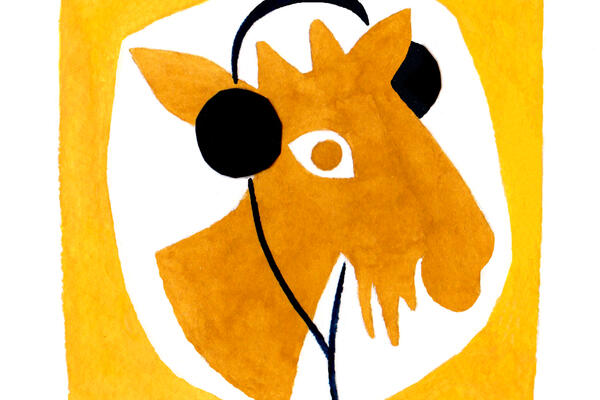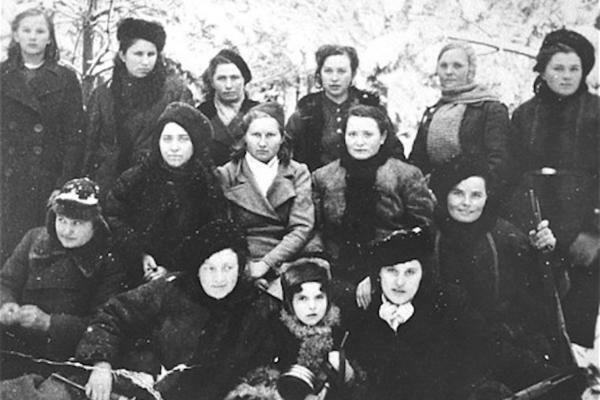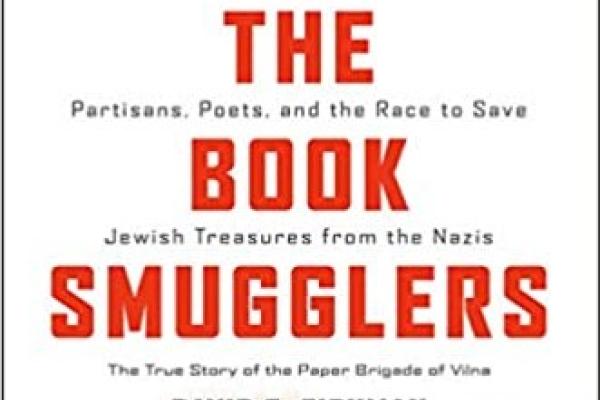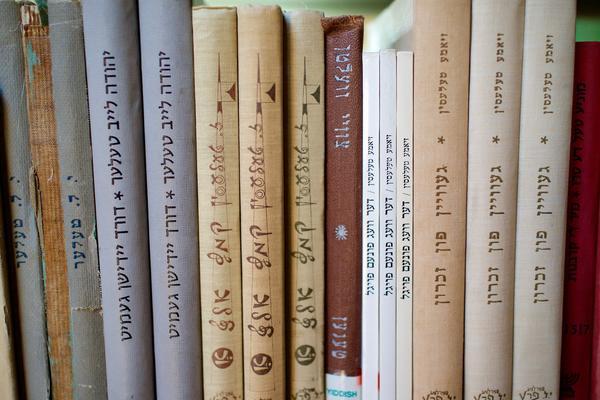The Paper Brigade and Other Forms of Resistance in the Vilna Ghetto
Pictured: Avrom Sutzkever and his wife, Freydke, looking through material saved in the Vilna Ghetto.
Stories of resistance are an essential yet sometimes overlooked aspect of Holocaust history. Jewish opposition to the Nazi genocide took many forms: armed, spiritual, and cultural. Cultural resistance in the Vilna Ghetto most famously involved a group that came to be known as the Paper Brigade. These Jewish intellectuals were part of a forced-labor group organized by Nazis to help select what would be featured in what they planned to be a museum to an exterminated race. Instead, some of them hid precious documents. Spiritual resistance took other forms: students sharing food with their former teachers, and ghetto residents created hiding places for children and made art in the face of starvation and genocide.
Explore some stories of Jewish resistance in and around Vilna during World War II, selected from the Yiddish Book Center’s collections.
Hiding Among Jewish Treasures
Artist Samuel Bak describes how he hid among the materials sorted by the Jewish intellectuals of the Paper Brigade.
Avrom Sutzkever Writes Poetry in the Vilna Ghetto
Scholar Ruth R. Wisse describes how Avrom Sutzkever, a member of the Paper Brigade, began to write a new kind of poetry while in the Vilna Ghetto.
My (Least Favorite) Teacher in the Vilna Ghetto
Fania Brantsovsky—former Jewish partisan during World War II and librarian of the Vilnius Yiddish Institute—remembers how she and her friends would bring food to their teachers in the Vilna Ghetto during World War II. She specifically remembers visiting her Latin teacher, who had been her least favorite teacher in school.
"Compared With The Ghetto, It Wasn't Bad": Memories Of Being A Partisan
Liba Augenfeld (nee Maharshak)—Vilna native, former Jewish partisan, and prominent Yiddish cultural activist after immigrating to Montreal—remembers her time as a partisan during World War II. She was in the same unit as Paper Brigade members Avrom Sutzkever and Shmerke Kaczerginski.
Avrom Sutzkever Reflects on Poetry and Partisan Life
Avrom Sutzkever recalls some of his experiences in the Vilna Ghetto and as a Jewish partisan and discusses the origin of some of his poems. (Recorded May 24, 1959, during a public program at the Jewish Public Library of Montreal; video edited by Jordan Kutzik.)
Learning Yiddish Folk Songs From Jewish Partisans
Rita Katz, who survived World War II hidden in a swamp with her family while her father fought with a partisan unit, explains how Jewish partisans, including Paper Brigade members Avrom Sutzkever and Shmerke Kaczerginski, taught her Yiddish folk songs, and she shares part of one she remembers.




